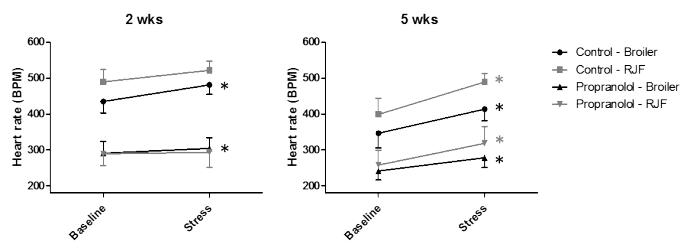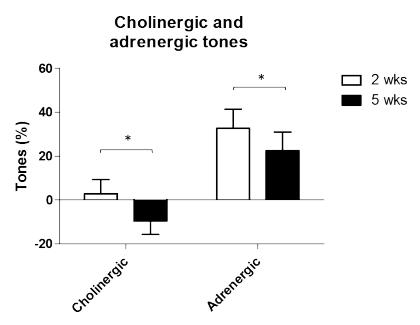Introduction
Heart rate is regulated by the two branches of the autonomic nervous system; parasympathetic stimulation decreases heart rate while sympathetic stimulation increases it. Previous studies on the autonomic nervous system in chickens have focused mainly on embryonic development, but it is largely unknown what happens in the weeks following hatching.
This Study
This study focused on the control and development of the autonomic nervous system in 2 and 5 week old broiler and Red Junglefowl (RJF). Since the domesticated broilers are less fearful and less active than their wild ancestor RJF, a possible domestication effect on the sympathetic nervous system was investigated by evaluating heart rate responses while inhibiting the sympathetic nervous system during stress. In addition, measurements investigating the mechanisms controlling heart rate were made.
Results
-Blocking the sympathetic tone significantly decreased heart rate during baseline and stress conditions (fig. 1).
- When the sympathetic tone was blocked, heart rate still increased during stress, more so in 5 week old birds than in 2 week old birds (fig. 1).
- Inhibitors of the parasympathetic tone had no effect on RJF birds in this study (fig 2).


Conclusions
- This study found that the heart is mainly under control from the sympathetic nervous system in 2 and 5 week old broiler and RJF.
- The results also suggests the involvement of some other physiological regulatory mechanism with fast recruitment in the stress response and it matures in the weeks following hatching.
- In RJF, it is likely that the heart is not under tonic control from the parasympathetic nervous system, but phasic control.
Responsible for this page:
Director of undergraduate studies Biology
Last updated:
08/17/15
